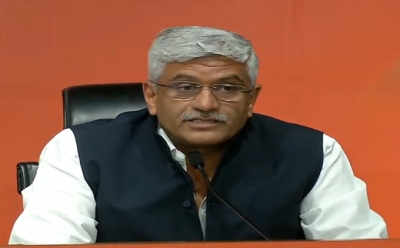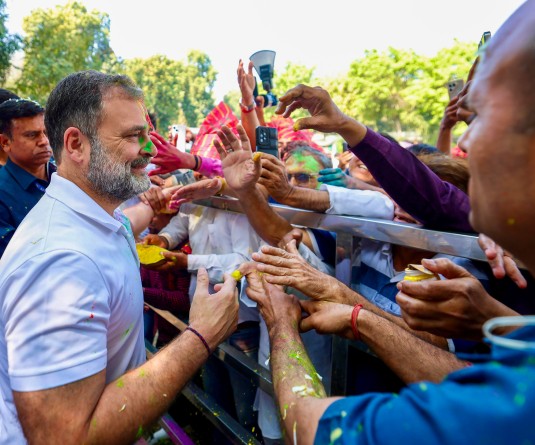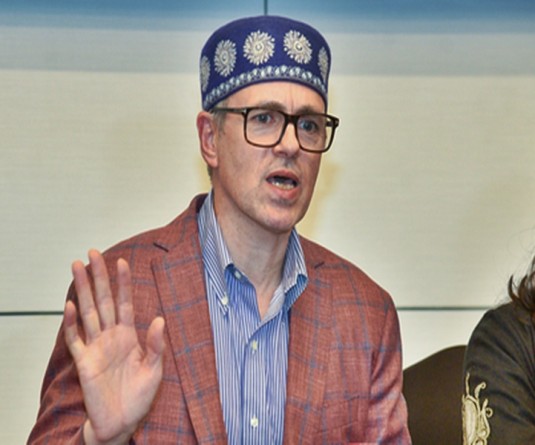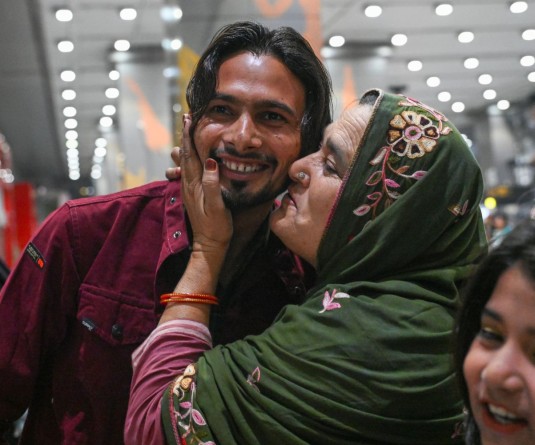India''s water ''unproductive'', ''least productive'': Minister

New Delhi, November 21 (IANS) Asserting that the government is working in the direction of enhancing drinking water capacity in the country, Jal Shakti Minister Gajendra Singh Shekhawat on Thursday said India''s water is "unproductive" as well as "least productive", and suggested that the drinkable water resource of the country can be restored for the next 50 years if 10 per cent of irrigation water is saved.
Noting that 18 per cent regions of the country face flood problem and 12-13 per cent go through drought every year, the Minister stressed the need for water management and informed the Lok Sabha in a written reply that no proposal to declare the right to safe water a fundamental right is under consideration by the government.
The Minister said the Centre, however, is committed to ensuring that every rural household in the country has access to piped potable water under the ambitious Jal Jeevan mission.
"India''s water is least productive. There is a need for a water management and the maximum use of irrigation water. If we save almost 10 per cent of the irrigation water, we can prosper the country with drinkable water for the next 50 years," the Minister said in his reply to a query.
The Minister said that around 4,000 billion cubic metres of water comes into the country through ice and rain water which includes the water that comes from the river and international basins.
"About 2,000 billion cubic metre water is eligible for storage and use. Of this, 40 per cent is in the Northeast where there is no scope of irrigation," he said.
Considering the issue, Shekhawat said considering the water situation, the Central government has prepared a model for interlinking rivers.
He appealed to all states to sit together at one stage and forge a consensus on the issue so that water should be saved for the country.
The Minister said over 18 crore households are supplied drinkable water in the country and the government is planning to provide the facility to 15 crore more households for which Rs 3.5 lakh crore has been allocated.
"We are committed to ensuring clean drinking water to every rural household," Shekhawat said during Question Hour.
Shekhawat was responding to a query by BJP member Hema Malini who asked whether the government has a proposal to make the right to safe water a fundamental right.
Citing a recent NITI Aayog study, Malini said nearly 600 million Indians faced water stress with about two lakh people dying every year because of inadequate access to safe water.
"It is high time that the right to safe water should be made a fundamental right in the country. My question to the minister is whether there is a proposal to guaranteeing the right to safe water to the people either through the constitution or making legal provisions," Malini said in the House.
On the desalination of seawater to make it usable for drinking purposes, the Minister said the government is also working in this direction.
"Work is on over desalination of sea water in Gujarat, Tamil Nadu and some Union Territories. In the coming future, almost 30 per cent of drinking water in Chennai will be used after desalination of seawater.
Desalination is a process that takes away mineral components from saline water. More generally, desalination refers to the removal of salts and minerals from a target substance, as in soil desalination, which is an issue for agriculture.
Mentioning that only Israel and some other countries have been using desalinated water for agriculture purpose, the Minister stressed on the need to hold discussions over demand side management of water along with the supply side management.






